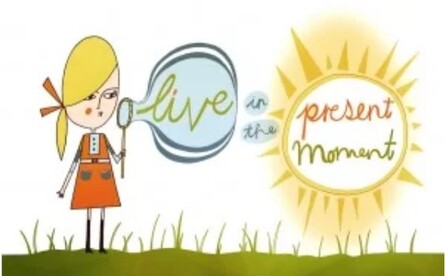take the first Step into a Journey and explore what
it means to be in the moment with mindfulness.
 Mindfulness is a mental process of being deeply aware of our experience in the present moment, without judgment. This involves deliberately focusing our attention to become more aware of both body sensations and the wide range of thoughts and feelings that arise each moment in our mind. With mindfulness practice, we also learn to accept what we notice in our experience without reacting to it or becoming overwhelmed by it. Many academic and clinical studies have shown that being mindful in our daily life provides us with a wide range of benefits. These include reducing stress and anxiety, managing chronic pain, better sleep, improving focus and concentration, increasing empathy and compassion, developing closer relationships and promoting our overall well-being. It is important to note that after a lifetime of living without such awareness, mindfulness is a skill that can take a little time to learn. Mindfulness is learned 'experimentally', rather than intellectually. On an 8-week course, a qualified tutor will guide you in the use of specially designed mindfulness meditations. Practicing mindfulness meditations involves sitting quietly and focusing on the present moment, typically by deliberately paying attention to the breath or other bodily sensations, letting thoughts come and go. Mindful walking and mindful movement practices are learned too. Learning mindfulness requires regular practice of attention and awareness with the mindfulness meditations. Studying the principles and concepts of mindfulness can provide an intellectual understanding of the ways in which mindfulness can be beneficial, but it is through the wisdom gained by experience of consistent, regular practice, that we will more fully develop our mindfulness skills. We could think of it like learning to swim. We could read a book about 'how to swim' and understand how it works, but until we get into the water and practice swimming, we’re not going to learn to swim. And just as a stronger swimmer is more likely to be able to cope with choppier waters, a person with well-practiced mindfulness skills can develop greater emotional resilience and a wider range of ways to respond to the inevitable stresses of life. So, while intellectual learning can serve as a starting point, it is only by taking the time to practice and apply mindfulness in our lives that leads to its wide range of valuable benefits. Many people from our courses talk about how learning mindfulness has transformed their lives. This could be you also! Find out who joins our mindfulness courses HERE
7 Comments
|
AuthorWrite something about yourself. No need to be fancy, just an overview. Archives
April 2023
Categories |
|